Author: Rose Miyatsu
-
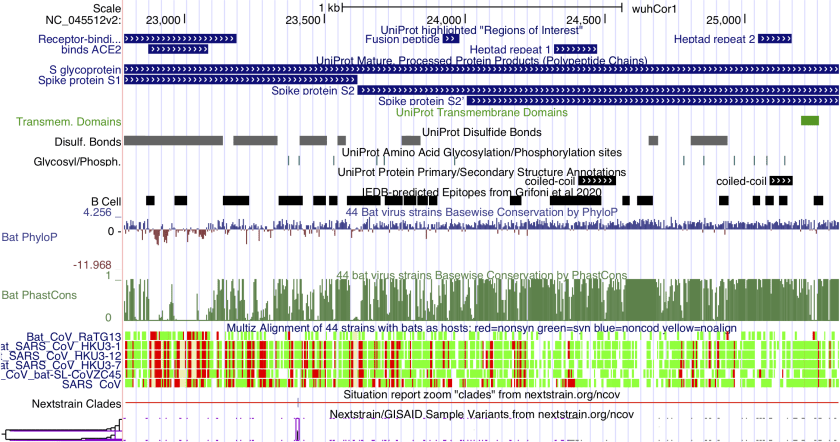
No ‘variants of concern’ in first Santa Cruz County tests, though bulk of samples show California strain
Mallory Pickett | March 1, 2021 | Lookout Santa Cruz UC Santa Cruz scientists said Monday that they had completed genomic sequencing of 84 COVID-19 samples from Santa Cruz County, with none of the CDC’s three official “variants of concern” turning up. But approximately 65% of the samples contained the so-called California variant, known as…
-

Share pandemic sequences openly and fast
Nature | David Haussler, Max Haeussler, Angie Hinrichs, Russell Corbett-Detig & Isabel Bjork | March 3, 2021 We agree that urgent research on SARS-CoV-2 sequence data is being slowed by antiquated regulations and those who put data ownership and priority over the common good (see Nature 590, 195–196; 2021). In 2006, to address this problem…
-

U.S. Push to Find Covid Variants Remains Piecemeal, Disconnected
U.S. efforts to detect dangerous, fast-moving Covid-19 mutations that are already bedeviling states remain slim and disconnected as the Biden administration seeks to speed up the process.
-
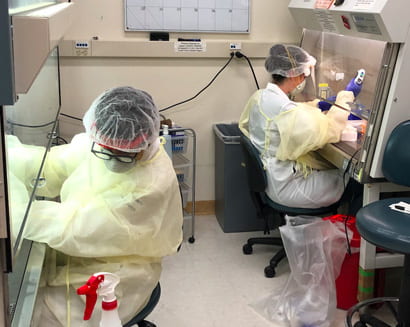
UCSC expands COVID-19 testing during surge to support community needs
UC Santa Cruz | December 15, 2020 UCSC has become an integral part of how our community responds to COVID-19.” With COVID-19 cases surging, the Colligan Clinical Diagnostic Laboratory is processing an increasing number of tests to identify COVID-19 infections in the local community. Watch
-

Tiny Blobs of Brain Cells Could Reveal How Your Mind Differs From a Neanderthal’s
Researchers grew clusters of brain cells in the lab with a gene carried by our ancient ancestors. Carl Zimmer | New York Times | Feb. 11, 2021 In recent years, scientists have figured out how to grow blobs of hundreds of thousands of live human neurons that look — and act — something like a…
-

How a single gene alteration may have separated modern humans from predecessors
Novel study used brain organoids genetically modified to mimic now-extinct Neanderthals February 11, 2021 | University of California – San Diego As a professor of pediatrics and cellular and molecular medicine at University of California San Diego School of Medicine, Alysson R. Muotri, PhD, has long studied how the brain develops and what goes wrong…
-

UCSC gears up to to begin search for COVID-19 variants in Santa Cruz County
COVID-19 tests are performed UCSC Molecular Diagnostic Lab, from which positive samples will be curated for genetic sequencing starting later this month. (Carolyn Lagattuta / UCSC) February 10, 2021 | Nick Ibarra, Mallory Pickett | Lookout Santa Cruz While new and potentially more contagious COVID-19 variants continue to crop up across California, not a single…
-
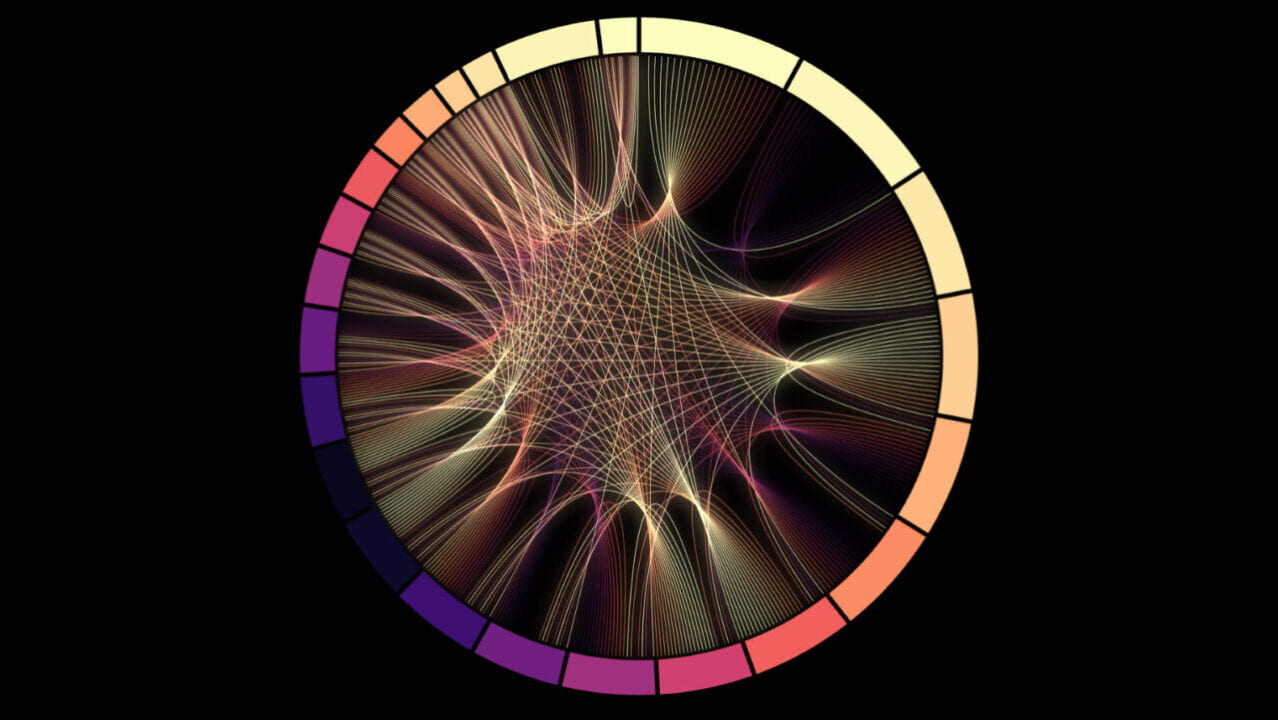
Milestones in Genomic Sequencing
Twenty years ago, the Human Genome Project published its first draft sequence of the entire human genome. A sizeable collection of papers, their published research filled much of the 15 February 2001 issue of Nature, and represented the culmination of some 15 years of work. But it was only the beginning. Read more.
-
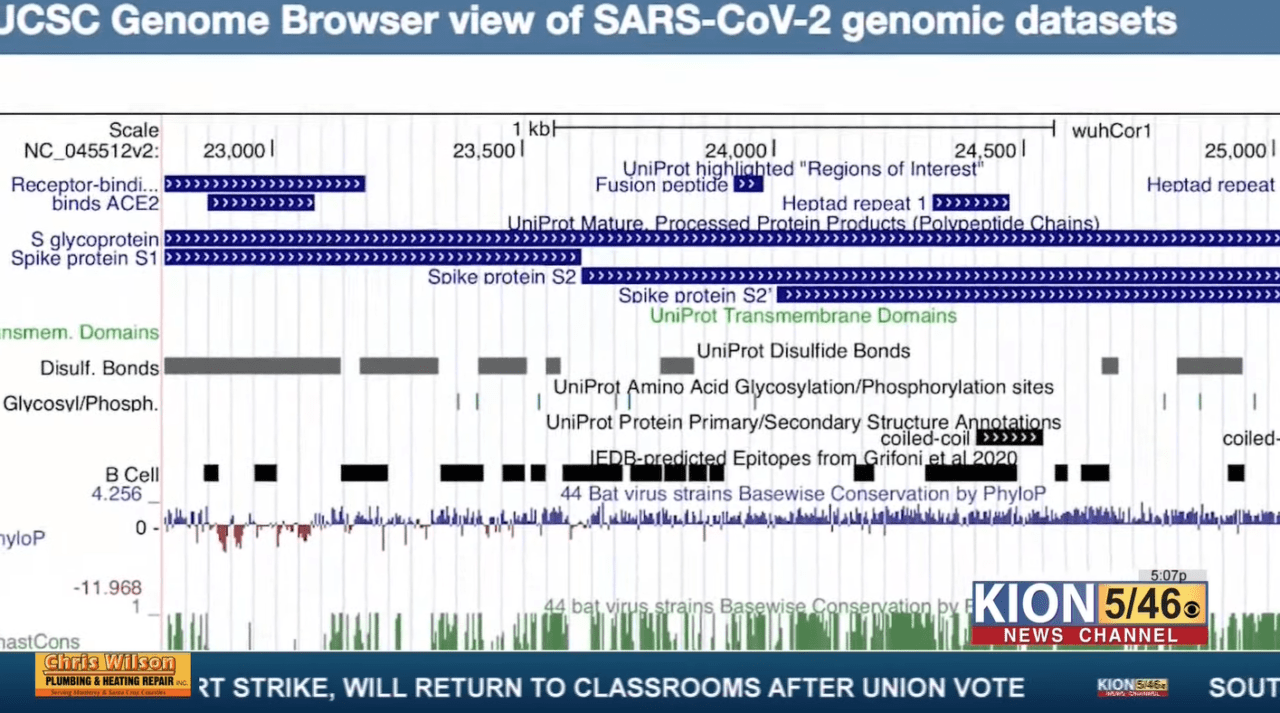
Tracking the mutating COVID-19 virus: UC Santa Cruz Genomics Institute speaks with KION
February 10, 2021 | Aaron Groff | KION SANTA CRUZ, Calif. (KION) Russ Corbett-Detig is a UC Santa Cruz Genomics Institute affiliate. They’re helping the global effort of tracking the mutating virus behind the COVID-19 pandemic. “We’ve written the software package that does this fast evolutionary relationship building, but we also a web browser portal that we designed…
-

Filling in the gaps telomere to telomere
February 10, 2021 | Katharine Wrighton | Nature Portfolio In 2020, almost 30 years after the launch of the Human Genome Project, Miga, Koren and colleagues published a paper describing the first gapless, telomere-to-telomere (T2T) assembly of a human chromosome, namely the X chromosome. This breakthrough was the work of the T2T consortium and brought…
-
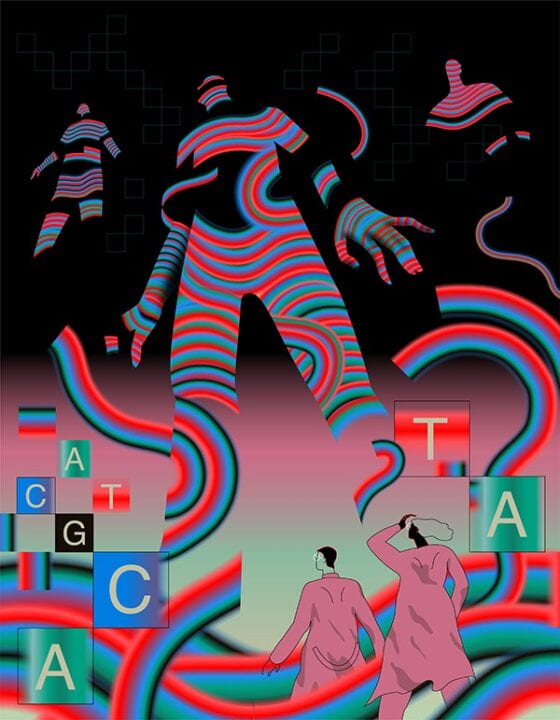
The broken promise that undermines human genome research
Data sharing was a core principle that led to the success of the Human Genome Project 20 years ago. Now scientists are struggling to keep information free.
-
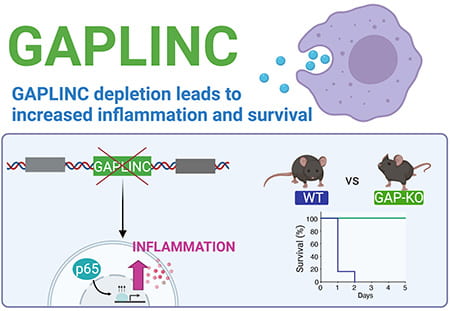
Noncoding RNA has surprising effects on immune response and sepsis, study finds
A long noncoding RNA regulates the expression of inflammatory genes and has a surprising effect on vulnerability to septic shock in mice February 01, 2021 | Tim Stephens | UCSC When the body’s immune response to an infection gets out of control, the result can be sepsis, a life-threatening condition in which an overwhelming inflammatory…